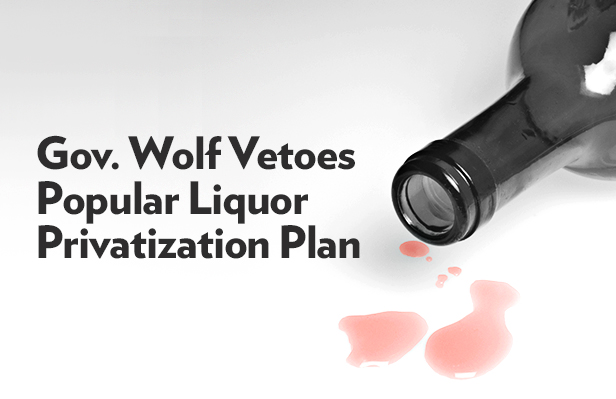Media

Corruption is Spelled P-L-C-B
When it comes to government corruption investigations, Attorney General Kathleen Kane has dominated the conversation this summer. But now, as if seemingly miffed at the spotlight being taken away from their own scandals, the Pennsylvania Liquor Control Board's (PLCB)'s culture of corruption is once again making headlines.
For those of you catching up, we've written about various recent PLCB scandals here, here, here, here, here, here, here, and here.
And today, we add to the list former Director of Marketing & Merchandising James Short. Short pleaded guilty to federal charges of soliciting and concealing bribes and kickbacks that ranged from all-expense-paid golf trips to shiny new cuff links. Short accepted these from vendors seeking to do business with the PLCB at its stores statewide—namely, the stores that Pennsylvanians are forced to shop from if they want to buy wine and spirits in state.
The culture of corruption at the PLCB shows precisely why Gov. Wolf was wrong to veto liquor privatization this summer. When a few bureaucrats like James Short are given the power to control what products Pennsylvania residents can buy, it's no surprise that vendors offer lavish gifts to earn bureaucrats' favor. Clearly some officials are all too willing to accept them.
For years now, the government liquor monopoly’s headlines of ethics scandals have sounded more like a broken record than breaking news. But the biggest scandal of all is that taxpayers continue to fund the state-run system—of which only Utah is a counterpart—that invites this corruption.
As long as Gov. Wolf determines that bureaucrats have the power to determine wine winners and liquor losers, customers, job creators, and taxpayers pay for the scandals, inconvenience and inefficiencies of a government alcohol monopoly.